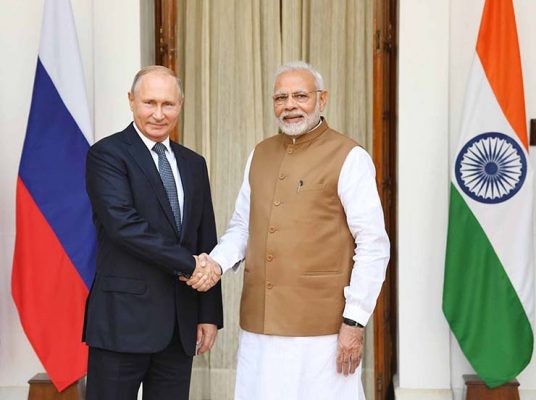
Moscow: In a move aimed at wielding more power at the end of his tenure, Russian President Vladimir Putin has proposed constitutional changes as his longtime ally, Prime Minister Dmitry Medvedev, unexpectedly resigned.
The changes laid out by Putin on January 15 would limit the power of a potential successor after 2024, when he is required by law to step down. He also proposed boosting the role of the State Council, which he already is heading.
As head of an empowered State Council, Putin could remain in control and guide policy after his presidential term expires.
“It’s not clear what role he will play, what will his status be. The only thing which is clear is that he will keep his role as the No 1 person,” said Aleksei Chesnakov, a political analyst and former Kremlin aide.
Medvedev’s resignation represents the biggest shake-up in the Russian government in nearly a decade, as Putin has tried to project an image of stability despite a worsening economy and increasing layers of Western sanctions.
Putin in his annual State of the Union address said the proposed changes to Russia’s constitution would be put to a vote “given that they reflect fundamental changes to the political system.” The vote could take place before the summer according to Russian news agencies citing an unnamed official.
The proposals would give parliament the authority to confirm the prime minister and the government cabinet, taking some powers away from the office of the president.
Putin also suggested that the status of the State Council be enshrined in the constitution, where it would likely be listed as an arm of the executive branch.
Putin, 67, is looking for ways to remain influential in Russia, whether he steps down or contrives another way to prolong his official position at the top, said Thomas Graham, a distinguished fellow at the Council on Foreign Relations in New York.
“He wants to be in control of the process,” Graham said. With possible constitutional changes ahead, “he gives himself a number of options by which he can do that.”
Putin proposed that Federal Tax Service Chief Mikhail Mishustin, a relatively unknown technocrat who has worked as head of Russia’s tax service since 2010, become the next prime minister, according to state news agencies. The Russian state Duma, or lower house of Parliament, is set to consider his candidacy on January 16.
Medvedev, whose cabinet also resigned, will stay on as prime minister until a new government is formed, Putin said on state television. He said Medvedev would be offered a newly created post of deputy chairman of Russia’s security council—a relatively minor role.
“Under these conditions, I believe it would be right for the government of the Russian Federation in its current state to resign,” said Medvedev, sitting next to Putin.
While some autocratic leaders have changed constitutions to remain in power indefinitely, Putin has followed the letter of the law. In 2008, he stepped down as president and became prime minister while Medvedev served as president for four years.








